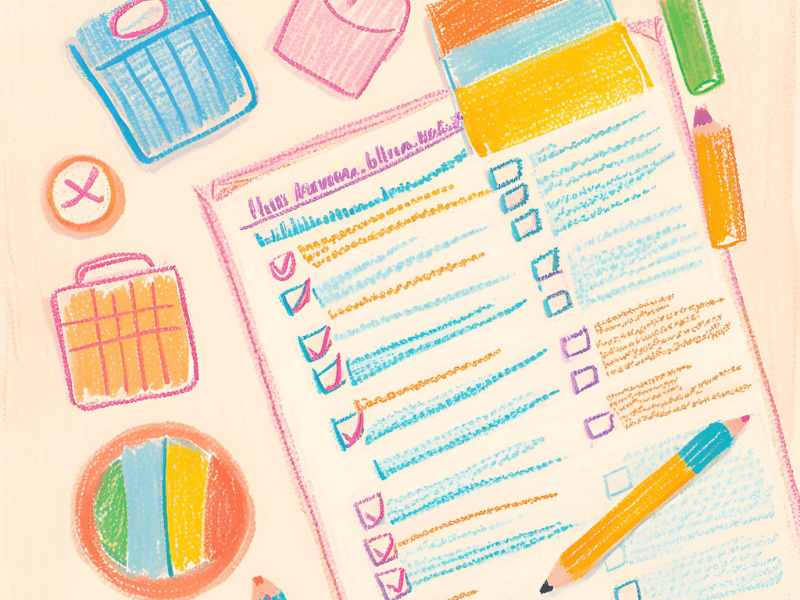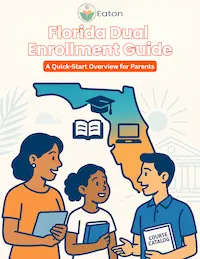Are You Ready? The FES-UA Annual Assessment Checklist Every Parent Needs
Homeschooling in Florida comes with plenty of advantages. You set your child’s learning pace, and you get to tailor lessons to their unique needs. Yet, it also includes responsibilities—especially if you use the Family Empowerment Scholarship for Students with Unique Abilities (FES-UA). One of these responsibilities is the FES-UA Annual Assessment, a requirement that helps ensure your child’s educational progress. In this guide, you’ll learn why it matters, how to prepare, and what to do with the results.
Why the FES-UA Annual Assessment Matters
The FES-UA Annual Assessment is a standardized test or equivalent evaluation. It applies to students in grades 3–10 who are enrolled in a private school participating in the FES-UA scholarship. Some homeschoolers who use partial enrollment options also have to complete this assessment. The Florida Department of Education requires these evaluations so they can confirm that every child’s academic progress is on track.
1. Maintaining Scholarship Compliance
You must follow this testing requirement if you want to keep your child’s FES-UA funding. Missing deadlines or skipping the evaluation can lead to scholarship interruptions. Knowing those rules upfront reduces stress later. If you need a broad view of Florida’s homeschool rules, visit Homeschool Florida: Your Ultimate How-To Guide.
2. Measuring Growth
A yearly evaluation shows how much your child has learned in math, reading, and other core subjects. It helps you see which areas might need extra focus. When you have a child with special learning needs, consistent assessments offer peace of mind. You’ll know they’re getting the right support at the right time.
3. Demonstrating Accountability
A solid testing record reassures others that your child’s education meets or exceeds Florida’s expectations. If you ever move, switch programs, or explore other scholarships, these scores prove that your child is making academic progress.

Who Must Take the FES-UA Annual Assessment?
Most students in grades 3–10 who benefit from the FES-UA scholarship must complete an approved standardized test each year. However, children with disabilities who cannot sit for a regular test can qualify for an exemption. Their parent or guardian must fill out a Standardized Testing Exemption Form, as explained in the 2024-25 FES-UA School and Provider Handbook. That documentation usually includes a medical or psychological evaluation, which supports the request.
Homeschool and Partial Enrollment
If you homeschool full-time without FES-UA funds, you may not face the same testing rules. Yet, partial enrollment in a private school or specialized services might trigger the need for an FES-UA Annual Assessment. Always confirm the details with your scholarship organization to avoid confusion. You can also explore Florida Homeschool Evaluations: Everything You Need to Know if you want more detail on how these evaluations fit into your overall plan.
FES-UA Annual Assessment Checklist
A detailed plan makes test season go smoothly. Use this checklist to stay organized and stress-free.
1. Verify Testing Windows
Private schools often schedule standardized tests in spring or early summer. Mark these dates on your calendar. If you’re new to the scholarship, ask your school or your scholarship provider about deadlines. You can also look for official testing information at Florida Department of Education.
2. Talk to Your School About Accommodations
Students with special needs may receive extended time or alternate settings. These accommodations help create a fair testing environment. If your child qualifies, gather medical or psychological records to support your request.
3. Collect Practice Materials
Standardized tests can feel daunting. Help your child build confidence with sample questions. Many reputable sites offer free or low-cost materials. You can find suggestions at ed.gov, which lists various educational resources for parents.
4. Prepare Your Child
Discuss the testing process in a calm way. Explain that this evaluation measures what they’ve learned. Encourage them to do their best. Create a consistent schedule for light review sessions, especially if your child benefits from repetition and structure.
5. Focus on Key Subjects
Reading comprehension, vocabulary, writing skills, and mathematics are major test topics. Keep these core areas in mind if your child needs a study routine. If you spot weaknesses, consider targeted tutoring. You can pay for this service through FES-UA scholarship funds, as long as the tutor meets the criteria described in the FES-UA Provider Handbook. You’ll also find tips for legal scholarship usage in How to Use Florida Scholarship Funds Legally.
6. Take the Test
On test day, send your child off with a positive mindset. A good breakfast and relaxed morning routine boost focus. If you’re using part-time private schooling, confirm drop-off and pick-up times. If you have questions about testing fees, check with your school or read more about Florida Scholarship Compliance: Next Steps, Transferring Schools, and Using Funds Properly.
7. Review the Results
Your child’s scores will come later—often in the summer. You’ll receive a report that highlights strengths and areas needing attention. This feedback helps you decide on next steps or improvements for the coming year.

How the FES-UA Annual Assessment Works with Special Education Needs
Many families rely on FES-UA because it offers extra flexibility for children with learning challenges. Standardized tests can still benefit these students. The results help you see whether your child’s Individual Education Plan (IEP) or support services are on the right track. You also show that you’re meeting Florida’s expectation of educational progress. If your child cannot participate due to a severe disability, request an exemption. You’ll need:
- A letter from your child’s physician or therapist.
- Relevant documentation for the scholarship provider.
- Completed exemption forms before the annual testing window.
If you need further clarity on special education guidelines in a homeschool setting, review IEP Homeschool Florida: What Happens if They Return to Public School?.
Common Myths About the FES-UA Annual Assessment
Myth 1: “A low test score will end my scholarship.”
Reality: The main point is ensuring your child’s growth. Missing the test is a bigger concern than a lower score. A single year of below-average performance won’t usually disqualify your child.
Myth 2: “Students with special needs can’t use accommodations.”
Reality: Florida encourages accommodations for qualified students. Extra time or alternate environments are common.
Myth 3: “All homeschoolers skip standardized tests.”
Reality: Some homeschoolers skip them. But if you’re using FES-UA or partial enrollment, you may need an FES-UA Annual Assessment or an equivalent measure.
Dealing with Test Anxiety
Children sense their parents’ emotions. If you stay calm, you’ll help them approach the process with confidence. Focus on daily learning rather than “cramming.” Reading together and exploring math in real-world situations often provides a strong foundation. If anxiety spikes, talk to teachers or consider a relaxed practice test at home. A restful night’s sleep helps, too.
Your Role After the FES-UA Annual Assessment
Once your child finishes testing, track when scores will arrive. Review them privately first. Celebrate any growth you see, and identify weaker spots. Remember, one test doesn’t paint the full picture. If you find recurring issues, consider part-time tutoring, therapy, or an adjustment to your daily homeschool schedule. If you wonder how many hours your child should spend on core subjects, see Best Homeschool Schedule: How Many Hours Does It Take?.
Stay organized. Keep a folder with score reports, relevant emails, and any discussion notes from your school. If you switch scholarships or schools, these records prove you met Florida’s guidelines.

Final Steps and Your Next Move
The FES-UA Annual Assessment benefits you and your child. You confirm progress, maintain scholarship eligibility, and make better learning choices. If your child struggles, this test highlights areas for improvement. You might choose specialized tutoring or a new strategy for teaching reading or math. The result is a more tailored education.
Ready to Amp Up Your Homeschool Approach?
Join one of our online homeschool classes for grades K–8 by signing up here. You’ll enjoy professional instructors, flexible scheduling, and a caring community of fellow homeschoolers. That way, you can focus on your child’s growth rather than juggling endless logistics.
Think of the FES-UA Annual Assessment as a checkpoint on your homeschooling journey. You’ll see where your child excels and where you might add more support. This leads to smarter decisions, stronger skills, and a happier homeschool experience all around.



